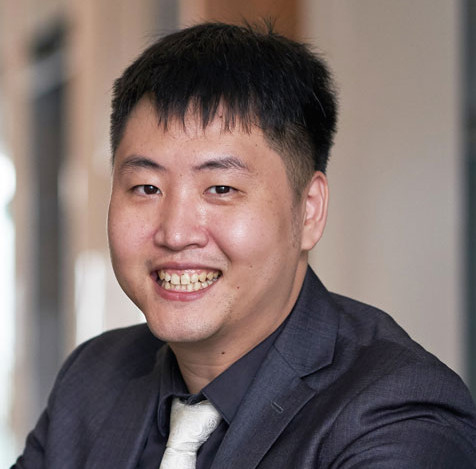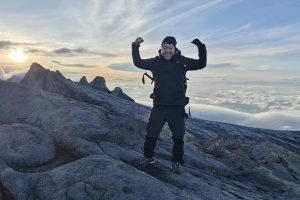- Who We Are
- Updates & News
- Standards
- Software Tools
- Network Studies
- Community Forums
- Education
- New To OHDSI?
- Community Calls
- Past Events
- 2024 Europe Symposium
- 2024 Thailand Tutorial
- 2024 Japan Tutorial
- 2024 DevCon
- 2024 Phenotype Phebruary
- 2023 Global Symposium
- 2023 APAC Symposium
- 2023 Europe Symposium
- 2023 SOS Challenge
- 2023 DevCon
- 2023 Phenotype Phebruary
- 2022 Global Symposium
- 2021 Global Symposium
- 2020 Global Symposium
- ALL Past OHDSI Events
- Workgroups
- 2023 ‘Our Journey’ Annual Report
- This Week In OHDSI
- Support & Sponsorship
- CBER Best Seminars
- 2024 Europe Symposium
- 2024 Global Symposium
- Github
- YouTube
- Newsletters
Collaborator Spotlight: Mengling 'Mornin' Feng
Previous Collaborator Spotlights
Mengling ‘Mornin’ Feng is an Assistant Professor at the National University of Singapore and the Assistant Director of Research (Healthcare) at the Institute of Data Science. He has several research interests, including artificial intelligence solutions for healthcare challenges, causal inference for evidence-based medicine, and deep learning models for medical image analysis.
Mornin has been an OHDSI leader in helping to spread the community to the Asia-Pacific region. He is the chair of the Singapore Chapter, and recently helped develop a collaboration with the Singapore Ministry of Health that has led the Ministry to use the OMOP CDM as the main platform for research.
In the latest edition of the Collaborator Spotlight, Mornin discusses his professional journey, how he connected with OHDSI, recent developments within the Singapore and APAC regions, and plenty more.

Can you discuss your professional journey, and what are your current research interests?
I started my research in data mining and machine learning during my PhD study. After that, I was fortunate to have an opportunity to work as a post-doc under the Harvard-MIT Health Science Technology program. During my post-doc, I was exposed to the cross-disciplinary research of developing machine learning models to analyze healthcare data. Instantly, I was attracted by the unique challenges and also the promising potential of this cross-disciplinary field. As a result, when I returned to Singapore in 2016, I joined the National University of Singapore faculty and started my Healthcare AI lab. My lab now has about 20 PhD students and researchers. Our research mainly focuses on three domains: 1) computer vision technologies customized for medical images; 2) reinforcement learning for treatment recommendation; and 3) natural language processing methods for clinical text understanding.
Despite being a technical lab, we collaborate closely with local and international physicians. All our projects are motivated by real and pressing clinical needs, and they are also developed with real-world clinical data.
How did you first find OHDSI, and what inspired you to work with the community?
I began my journey with OHDSI in 2018. At that time, I was looking for a suitable solution for clinical data standardization and federated analysis for Singapore. I met Rae Woong Park from Ajou University at a conference and learned that he was the pioneer in clinical data standardization in South Korea. We chatted for hours about how his team has successfully implemented the OMOP CDM as the standard data schema for research clinical data and how that may have accelerated the clinical research in Korea. Inspired by his success, I started to learn more about OHDSI and its platforms, tools and organizations. I also began to advocate for OHDSI as the data standard and consortium that we should follow as a country to our Ministry of Health and major healthcare institutes.
 You have a focus on developing effective data analytics and AI solutions to extract actionable knowledge to improve the quality of care. How has OHDSI tools/practices enhanced your ability to do such research?
You have a focus on developing effective data analytics and AI solutions to extract actionable knowledge to improve the quality of care. How has OHDSI tools/practices enhanced your ability to do such research?
My Healthcare AI lab at the National University of Singapore focused on developing data analysis and AI models for various healthcare challenges. To validate the performance of our analytics and AI models, data from multiple institutes or multiple countries are often needed to ensure the generalizability of our models. However in Singapore, due to some legacy issues, all our major healthcare institutes are using different EHR systems. Even within the same institute, data from different departments can be stored in different data systems too. Integrating data within or across institutes were almost infeasible. It would take tremendous effort to conduct any cross-institute studies, much less cross-country studies. The timing was just perfect. We got introduced to OHDSI while we were eagerly looking for a solution for the issue.
You are the lead of the Singapore chapter. What are the challenges of trying to bring OHDSI into a new country, and what are some of your early successes?
In the beginning of our Singaporean chapter, both OHDSI, as a consortium, and OMOP CDM, as a data standard, were new to our Singaporean researchers. Despite being curious about it, most of our researchers knew very little about the OMOP CDM and the associated tools and have not seen these platforms and tools in action. To bridge the knowledge gap, we invested our team to convert the EHR data in our own affiliated hospital, the National University Hospital (NUH), to the OMOP CDM first. After slightly more than one year’s effort, we have mapped 3 years of our data to the OMOP CDM, based on which we managed to successfully launch Atlas. After our initial launch, we have received an overwhelming 150 study requests within the year.
With the success of the case studies with our hospital, we slowly managed to convince all the other major public hospitals in Singapore to adopt the OHDSI OMOP CDM as their clinical research data standard too. Furthermore, our Ministry of Health came onboard as well to use OMOP CDM for our national clinical data sharing platform, called TRUST. We are really happy with the development in Singapore so far. We hope to see more Singaporean research teams to start participating in our regional and global OHDSI studies after their ETL processes are complete.
Can you talk about the upcoming APAC Symposium, and what you hope both yourself and your colleagues can take from the experience?
The SG OHDSI chapter has been disseminating information about the upcoming APAC symposium to all public healthcare institutions in Singapore, including the Ministry of Health. Several of our collaborators have expressed interest in attending the regional event to learn from other APAC chapters about their experiences in implementing the OMOP CDM and developing new tools for OHDSI. Some Singaporean teams, such as my lab and A*STAR, have also submitted abstracts to present their latest OHDSI projects. Look forward to seeing all our APAC partners soon in the symposium.
What are some of your hobbies, and what is one interesting thing that most community members might not know about you?
I was a dancer while I was young 😄.

